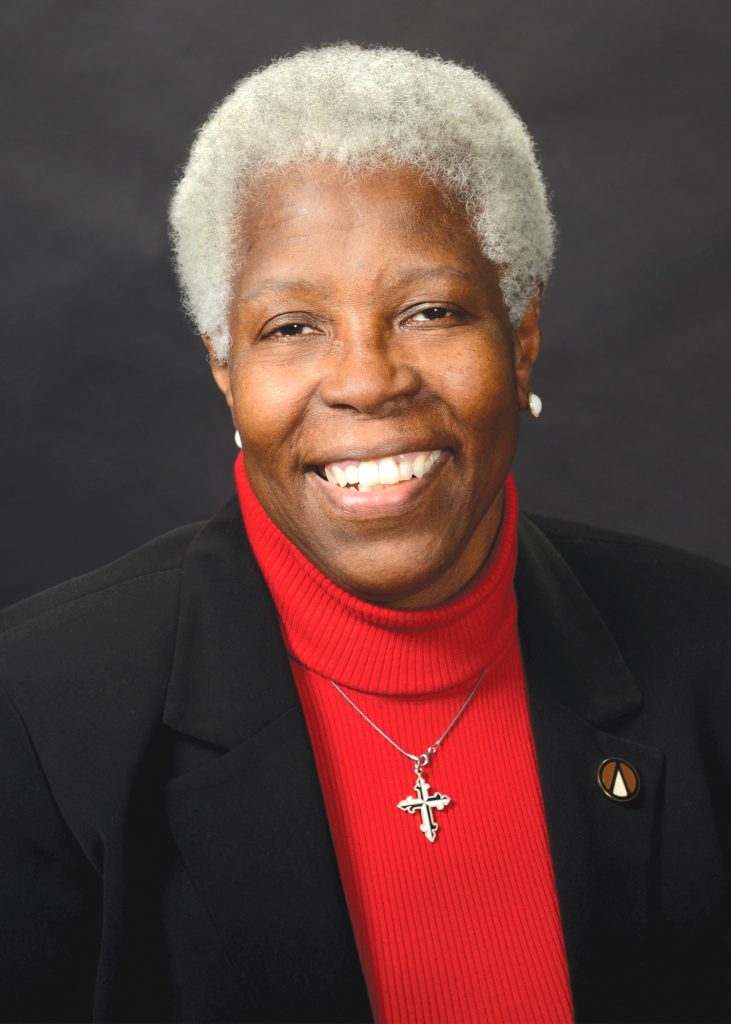Sister Jamie Phelps, OP, Discusses Black Spirituality

March 2, 2021, Adrian, Michigan – At the mid-point of February, Black History Month, Sister Jamie Phelps, OP, gave a presentation on African American spirituality – rooted in the spirituality of Africans – and of the need for all spiritualities and all people to be accepted and valued as gifts of God.
Sister Jamie’s talk was part of a series of monthly presentations on spirituality, coordinated by the Adrian Dominican Sisters’ Spirituality Committee. Her talk was a live stream presentation on February 16, 2021.
An Adrian Dominican Sister since 1959, Sister Jamie is a theologian, currently residing at the Dominican Life Center in Adrian. She served for eight years as the Director of the Institute for Black Catholic Studies and was the Katherine Drexel Professor of Systematic Theology at Xavier University in New Orleans. Before that, she taught theology in Chicago at the Catholic Theological Union (CTU) from 1986 to 1998 and Loyola University, 1998 to 2003. Sister Jamie has also served as a visiting professor of theology at the University of Dayton in Dayton, Ohio, from January to May, 2003, and twice at the University of Notre Dame: in 2005-2006 and 2012-2013.
“My assumption is that we’re all human beings, but depending on where we were raised, where we were born, what city, what environment we were raised in, we experience God in different ways,” Sister Jamie began. “Spirituality is a reflection on how we relate to God.”
Sister Jamie spent much of her presentation describing the African world view, the root of the world view of African Americans. For Africans, identity is rooted in the community – not the individual. Their concept of time is “that of the eternal now,” in which life, death, and immorality are circular and interconnected, she said. In this worldview, she said, “everything that is, is connected – connected to each other and to the source of their being, God.”
When African slaves encountered Christianity, they “incorporated aspects that eased their burden of captivity,” Sister Jamie explained. She gave the example of slaves in Latin America and in the Caribbean, who found that elements of Catholic tradition resonated with their tradition of intercessions and recognition of God’s presence. “Catholicism denied this mixing as a false syncretism,” she said. “But now the Church recognizes enculturation – discovering in your culture, in your way of being, the God who is present, and expressing this using the symbols and traditions that are part of your cultural history.”
 USA
USA


